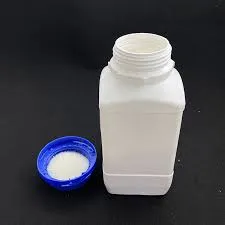What Do Dietary Supplements Do?
Dietary supplements have become increasingly popular in recent years as people look for ways to enhance their health, improve their nutrition, and support their overall well-being. But what exactly do these supplements do? Understanding their purpose, benefits, and limitations is essential for making informed choices.
What Are Dietary Supplements?
Dietary supplements are products that contain vitamins, minerals, herbs, amino acids, enzymes, or other dietary ingredients intended to supplement the diet. They come in various forms, including capsules, tablets, powders, and liquids. While they are designed to provide nutrients that may be missing from one’s diet, dietary supplements are not intended to replace whole foods but should complement a healthy lifestyle.
Filling Nutritional Gaps
One of the primary functions of dietary supplements is to fill in nutritional gaps. Many people struggle to obtain all the necessary vitamins and minerals from food alone due to busy lifestyles, limited food choices, or dietary restrictions. For example, vegans and vegetarians may lack sufficient vitamin B12, while individuals with lactose intolerance might not get enough calcium. In such cases, dietary supplements can help individuals meet their nutritional needs and support their health.
Supporting Specific Health Goals
what does dietary supplements do

Dietary supplements can also play a crucial role in supporting specific health goals. For instance, athletes and fitness enthusiasts may use protein powders to aid muscle recovery and enhance performance. Omega-3 fatty acids are commonly taken to support heart health and reduce inflammation. Additionally, supplements like vitamin D may help improve mood and support bone health, particularly in individuals who get limited sun exposure.
Enhancing Immunity
In recent years, especially during the COVID-19 pandemic, there has been heightened interest in supplements that support immune health. Vitamins C and D, along with minerals like zinc, are often highlighted for their role in immune function. While these supplements can contribute to overall health, it is essential to remember that they should not be seen as a silver bullet. A well-balanced diet, regular exercise, adequate sleep, and stress management are all critical components of a robust immune system.
Safety and Efficacy
While dietary supplements can be beneficial, it is crucial to approach them with caution. Not all supplements are created equal; the market is saturated with products of varying quality. It’s important to choose those that have been tested for purity and potency. Moreover, some supplements can interact with medications or may not be suitable for individuals with certain health conditions. Therefore, consulting with healthcare professionals before starting any new supplement regimen is advisable.
The Bottom Line
Dietary supplements can provide significant benefits by filling nutritional gaps, supporting specific health goals, and enhancing overall wellness. However, they should not replace a balanced diet rich in whole foods. Before incorporating supplements into your routine, it’s important to do thorough research and consider your individual health needs. By understanding what dietary supplements do and making informed choices, individuals can better support their health and well-being.

